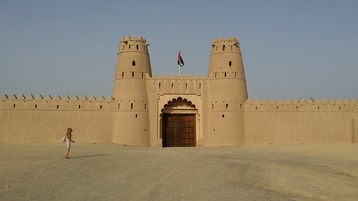-
Reactions against the normalization of relations between Hamas and the Syrian Regime

Restoring official relations between Hamas and the Syrian regime after ten years was severely criticised by various political & religious bodies and the Syrian & Palestinian society, but Hamas said this for the sake of the Palestinian cause. The normalization of relations between the two sides came after dialogues, meetings and negotiations that lasted for about five years. Last Thursday, Hamas announced it would continue to build and develop solid relations with the Syrian regime, after nearly 10 years of dispute.
In a press statement, Hamas officially confirmed its decision to resume its relationship with the Syrian regime for what it claimed as a service to our nation and its just causes, especially in light of the rapid regional and international developments that affect our cause and our nation. Syria regaining its role and position in the Arab and Islamic nations and we support all sincere efforts for Syria's stability, safety, prosperity and progress."
Some Palestinian factions blessed Hamas' step towards the relationship with Syria. Among the signatories to the statement are (Islamic Jihad, the Popular Front, the Palestinian Free Movement, the Democratic Front for the Liberation of Palestine, and the Popular Resistance Committees).
In addition, some Syrian organisations and activists reject that the Hamas movement normalises relations with the Syrian regime and that many factions bless this step. The Syrian writer Ali Amin al-Sawadi tweeted: "In case, a democratically elected national authority from the Syrian people comes to power in Syria, the factions whose names are on the list of those who bless and support Hamas will wish that they were not born."
"No one can deny Iran's support for Hamas and its impact on its struggle. Iranian pragmatism taught it how to be multifunctional and multilabeled," said the Syrian artist Ammar Agha al-Qala.

The Iraqi Scholars Association criticised the restoration of Hamas's relations with the Syrian regime. It considered it against the resistance in Palestine and the interests of the nation. "Hamas's restoration of its relations with the regime is not legitimate in justifying dealing with the Syrian regime at the expense of the oppressed, displaced and persecuted Syrian people," it said.
The Association of Muslim Scholars in Iraq said that "the illusory reconciliation based on which the movement built its decision, will harm the peoples wanting to get rid of what they are suffering from, and will increase dangers and corruptions that face the Palestinian cause and the region together, and will enhance the chances of normalisation in the region."
The Palestine Relief and Development Authority strongly condemned and called it a slide away from the nation's cause and its scholars' recommendations and Hamas will pay for that from the balance of its popular base. "Supporting the nation's causes means listening to people's conscience and their scholars' advice, not returning to a regime rejected by the entire nation. The regime which does not dare to respond to the Zionist aggression on its lands and always reserves the right to respond cannot be relied on to confront the occupation and liberate Palestine," it said.
The head of the oppositionist Syrian National Coalition Salem Al-Maslat denounced, on Twitter, "Hamas' insistence on normalisation with the Syrian regime. Many calls have been made to discourage the movement from this offensive step against millions of Syrians and Palestinians."
This normalization between Hamas and the Syrian regime happened about three months after the leaks that said the movement had decided to restore its relationship with the Syrian regime. Last June, Sources from "Hamas" told "Reuters" that the movement and the Syrian regime "are preparing to open a new page and restore relations after a 10-year of dispute."
The relationship between Hamas and the Syrian regime began in 1999 and continued until 2012. During that period, the al-Assad regime provided support in various fields to the organisation, but after the outbreak of the Syrian revolution, Khaled Meshaal, the former head of the Hamas office, refused to condemn the protests that erupted against the regime yet he raised the flag of the revolution in 2012 and left his residence, which was the movement's main office, heading to Gaza.
You May Also Like
Popular Posts
Caricature
BENEFIT AGM approves 10%...
- March 27, 2025
BENEFIT, the Kingdom’s innovator and leading company in Fintech and electronic financial transactions service, held its Annual General Meeting (AGM) at the company’s headquarters in the Seef District.
During the meeting, shareholders approved all items listed on the agenda, including the ratification of the minutes of the previous AGM held on 26 March 2024. The session reviewed and approved the Board’s Annual Report on the company’s activities and financial performance for the fiscal year ended 31 December 2024, and the shareholders expressed their satisfaction with the company’s operational and financial results during the reporting period.
The meeting also reviewed the Independent External Auditor’s Report on the company’s consolidated financial statements for the year ended 31 December 2024. Subsequently, the shareholders approved the audited financial statements for the fiscal year. Based on the Board’s recommendation, the shareholders approved the distribution of a cash dividend equivalent to 10% of the paid-up share capital.
Furthermore, the shareholders endorsed the allocation of a total amount of BD 172,500 as remuneration to the members of the Board for the year ended 31 December 2024, subject to prior clearance by related authorities.
The extension of the current composition of the Board was approved, which includes ten members and one CBB observer, for a further six-month term, expiring in September 2025, pending no objection from the CBB.
The meeting reviewed and approved the Corporate Governance Report for 2024, which affirmed the company’s full compliance with the corporate governance directives issued by the CBB and other applicable regulatory frameworks. The AGM absolved the Board Members of liability for any of their actions during the year ending on 31st December 2024, in accordance with the Commercial Companies Law.
In alignment with regulatory requirements, the session approved the reappointment of Ernst & Young (EY) as the company’s External Auditors for the fiscal year 2025, covering both the parent company and its subsidiaries—Sinnad and Bahrain FinTech Bay. The Board was authorised to determine the external auditors’ professional fees, subject to approval from the CBB, and the meeting concluded with a discussion of any additional issues as per Article (207) of the Commercial Companies Law.
Speaking on the company’s performance, Mr. Mohamed Al Bastaki, Chairman BENEFIT , stated: “In terms of the financial results for 2024, I am pleased to say that the year gone by has also been proved to be a success in delivering tangible results. Growth rate for 2024 was 19 per cent. Revenue for the year was BD 17 M (US$ 45.3 Million) and net profit was 2 Million ($ 5.3 Million).
Mr. Al Bastaki also announced that the Board had formally adopted a new three-year strategic roadmap to commence in 2025. The strategy encompasses a phased international expansion, optimisation of internal operations, enhanced revenue diversification, long-term sustainability initiatives, and the advancement of innovation and digital transformation initiatives across all service lines.
“I extend my sincere appreciation to the CBB for its continued support of BENEFIT and its pivotal role in fostering a stable and progressive regulatory environment for the Kingdom’s banking and financial sector—an environment that has significantly reinforced Bahrain’s standing as a leading financial hub in the region,” said Mr. Al Bastaki. “I would also like to thank our partner banks and valued customers for their trust, and our shareholders for their ongoing encouragement. The achievements of 2024 set a strong precedent, and I am confident they will serve as a foundation for yet another successful and impactful year ahead.”
Chief Executive of BENEFIT; Mr. Abdulwahed AlJanahi commented, “The year 2024 represented another pivotal chapter in BENEFIT ’s evolution. We achieved substantial progress in advancing our digital strategy across multiple sectors, while reinforcing our long-term commitment to the development of Bahrain’s financial services and payments landscape. Throughout the year, we remained firmly aligned with our objective of delivering measurable value to our shareholders, strategic partners, and customers. At the same time, we continued to play an active role in enabling Bahrain’s digital economy by introducing innovative solutions and service enhancements that directly address market needs and future opportunities.”
Mr. AlJanahi affirmed that BENEFIT has successfully developed a robust and well-integrated payment network that connects individuals and businesses across Bahrain, accelerating the adoption of emerging technologies in the banking and financial services sector and reinforcing Bahrain’s position as a growing fintech hub, and added, “Our achievements of the past year reflect a long-term vision to establish a resilient electronic payment infrastructure that supports the Kingdom’s digital economy. Key developments in 2024 included the implementation of central authentication for open banking via BENEFIT Pay”
Mr. AlJanahi concluded by thanking the Board for its strategic direction, the company’s staff for their continued dedication, and the Central Bank of Bahrain, member banks, and shareholders for their valuable partnership and confidence in the company’s long-term vision.
opinion
Report
ads
Newsletter
Subscribe to our mailing list to get the new updates!






















